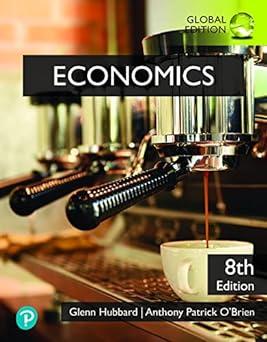In 2019, an article in the Wall Street Journal noted that continued strength in the [U.S.] dollar
Question:
In 2019, an article in the Wall Street Journal noted that “continued strength in the [U.S.] dollar is likely to be a boon for Europe and Japan . . . [but] has hurt the financial results of U.S. multinationals such as Google parent Alphabet Inc. and Procter & Gamble Co.”
a. What does the article mean by “the strength of the dollar”? Does a strong dollar exchange for more or fewer units of foreign currency than would a weak dollar?
b. In what sense would a strong dollar be a boon for Europe and Japan? Would a strong dollar be equally good for both European and Japanese consumers and European and Japanese firms? Briefly explain.
c. What are “U.S. multinationals”? Why would their profits be hurt by a strong dollar?
d. Does a stronger dollar result in a movement along the U.S. aggregate demand curve or a shift of the curve? Briefly explain.
Step by Step Answer:






